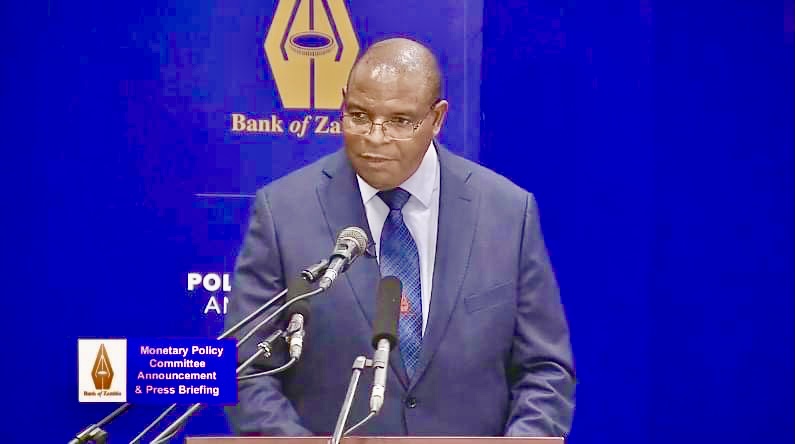Following two day deliberations on a rate decision in the last monetary policy committee of the year 2021 that commenced on November 22, Zambia’s central bank has decided to hike rates 50 basis points to 9.0%. This was announced by Governor Dr. Denny Kalyalya in his debut MPC of the year after his reinstatement following the resignation of Christopher Mvunga in the year.
READ ALSO: Kalyalya To Rethink ‘Inflation Curb’ as Rates Expected Pat in 2021’s Last MPC
Kalyalya attributed the hike to an aggressive stance by the central bank to curb double digit and elevated inflation currently at 21.2%.
“We have decided to hike rates to help bring inflation to single digit by 2022 and a 6-8% corridor by 2023,” Kalyalya said. If you look at the securities market, real yields on Treasury bill are negative because inflation is higher than where the curve is, he said.
Positive sentiment around the Zambian authorities strides towards concluding a deal with the Washington based lender the International Monetary Fund (IMF) gave a cue to the securities markets thereby pushing demand high and this forced the yields lower (as prices soared). Other drivers of increased appetite for government securities include the state of the global economy characterized by record inflation (5yr high for the US) and ultra thin yields making liquidity search for a house in emerging market securities.
Zambia has grappled with inflation which has been an indicator of the currency woes precipitating cost push effects, global supply chain disruptions as an autopsy of the COVID19 pandemic and demand pull pressures on the back of excess liquidity in the past months. This has moneyless sent the Kwacha demand curve underwater with real yields in negative territory.
THE GENESIS OF A RATE HIKE CYCLE
This outcome will be the second rate hike in 2021 with a cumulative 100bps upward adjustment from record lows of 8.0% (the lowest since the BPR started being tracked in 2021) in pandemic period 2020. The decision will to some extent address margin squeeze pressure for financial institutions following a flattening yield curve and will increase the burden on lenders whose facilities are pegged to the MPR. Other exogenous factors weighing on the central banks efforts to tame inflation will be global inflation that continues to weigh as a reflection of fourth corona virus wave effects constraining supply chains in addition to global food price increases.
Kalyalya becomes the second central bank head to be reappointed Governor after exiting the Bank of Zambia. The next MPC session will be held in February 2022.
The Kwacha Arbitrageur

